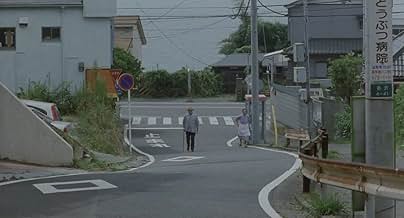A family gathers together for a commemorative ritual whose nature only gradually becomes clear.A family gathers together for a commemorative ritual whose nature only gradually becomes clear.A family gathers together for a commemorative ritual whose nature only gradually becomes clear.
- Awards
- 11 wins & 9 nominations
Storyline
Did you know
- TriviaIn a 2009 interview, Koreeda stated that Still Walking was based on his own family.
- GoofsAt the end, when the grandparents cross the road after Ryota and his family depart by the bus, their positions change between shots at the zebra crossing.
- Quotes
Atsushi Yokoyama: There's nothing to watch on TV these days. They laugh so loud but nothing's funny.
- ConnectionsReferenced in Il était une fois...: Une affaire de famille (2021)
Featured review
This film by writer/director Koreeda is a triumph of simplicity. Telling the story of a family who meet annually to mark the death of oldest son Junpei at the parent's house, you're struck by how well this flows. The acting is uniformly very good and the story never lags. The best thing I found about this film is how it could have been done without a script, if the actors were given this scenario. There is bitterness, pettiness and even selfishness here, all earmarks of the subject matter. I found the stylistic similarities to Ozu films to be very touching and not a bit off putting. When I watched this film in a theater in New York, people applauded at the end. This is about as real life as it gets. Its a universal theme, not a Japanese one. My hat is off to the writer/director, its a fine film.
- crossbow0106
- Sep 4, 2009
- Permalink
- How long is Still Walking?Powered by Alexa
Details
- Release date
- Country of origin
- Official site
- Language
- Also known as
- Even If You Walk and Walk
- Filming locations
- Production companies
- See more company credits at IMDbPro
Box office
- Gross US & Canada
- $167,047
- Opening weekend US & Canada
- $20,298
- Aug 30, 2009
- Gross worldwide
- $3,511,120
- Runtime1 hour 55 minutes
- Color
- Sound mix
- Aspect ratio
- 1.85 : 1
Contribute to this page
Suggest an edit or add missing content




























